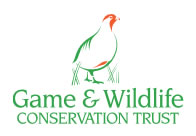The game cover and wild bird seed plots had developed well. However, the very dry period in the summer had held some of the kale within the wild bird seed mixtures back. Although a taller canopy would have been preferred, many of the plots will be kept for two years as the kale develops further. This helps to reduce the workload in terms of re-establishment, but more importantly, supplies valuable canopy and nectar flower in the spring and summer along with a great source of seed in the following winter.
A beneficial rotation is developing within the plots by growing brassica and cereal-based wild bird seed mixtures along with occasional strips of maize for game cover. This rotation helps to reduce the build-up of soil-borne disease such as club-root and provides weed control opportunities. Each of the crops planted has an agreed herbicide strategy prior to planting, which is essential if they are to establish successfully.
Supplementary feeding started in late December and will run through to the end of May. This option sees the provision of a seed mixture of wheat, oilseed rape, sunflowers, canary seed and millet along tracks and adjacent to areas of wild bird seed mixture three times a week. Farmland birds have responded well to this seed source with a wide range of species being seen.
With plans to improve existing margins and develop the on-going nectar flower and wildflower establishment trials, there is plenty to be working on this spring.
Game cover training day
Come and see the cover crops for yourself at the Kings and NGO training day on Wednesday 26th March at the Allerton Project, Loddington, Leicestershire. Designed specifically for game managers, the day aims to give targeted advice on crop management techniques and how they can be incorporated into the latest farming initiatives. To book please contact Kings on 0800 587 9797 or email kingscrops@frontierag.co.uk
 GWCT News & Advisory
GWCT News & Advisory

No comments:
Post a Comment